Legislative Session Ends With Medicaid Stalemate
By Dr. James Palermo // May 3, 2013
House And Senate At Odds Over Federal Funding
With one day left in the 2013 Florida legislative session, lawmakers are still at stalemate on the issue of Medicaid expansion as envisioned by President Barack Obama’s health-care law. The contentious and acrimonious activity and behavior in Tallahassee over the issue has been fodder for the national media with many reports characterizing the Legislature as devolving into “chaos” and “gridlock.” The source of the tension, of course, has been the disagreement between Republicans and Democrats, and between the lower and upper chambers of the Legislature, over whether to accept federal funds to expand Medicaid.
Time Has Run Out On Compromise
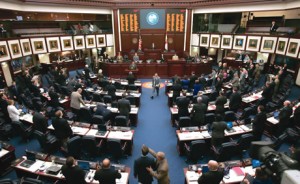
It’s safe to say that prospects for Medicaid expansion in the state appear to be dead in the water, and there is no time left to draft a compromise bill between the House and Senate that would either expand Medicaid as defined in the Patient Protection and Affordable Care Act (PPACA/Obamacare) or provide healthcare coverage to working low-income uninsured Floridians through a non-Medicaid private plan approved by the feds and funded with the help of billions of federal dollars. The state would have to submit any alternative plan proposed in lieu of Medicaid expansion to Health and Human Services (HHS) by June 14, with an eye toward winning approval in time to start enrollment on October 1.
As previously reported on SpaceCoastDaily.com, the legislative standoff potentially affects access and affordability of healthcare for up to a million low-income and uninsured Floridians. The key difference between the chambers is whether to accept more than $50 billion from the federal government, a plan the Senate favors and the House opposes.
Senate Proposal Based On Both State And Federal Funding
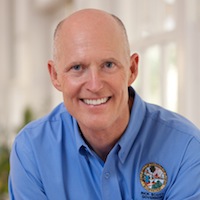
The Senate plan, called Healthy Florida, which is endorsed by Governor Scott and has garnered support from a broad swath of industries and leaders of both political parties, proposes an approach that is based on the same platform as the Florida Healthy Kids (FHK) program, the popular non-profit that enrolls low-income children in health plans using a combination of federal and state funds, and would rely on $51 billion in federal money over 10 years to provide health insurance to the million or so individuals estimated to qualify for the plan.
Washington’s Financial Stewardship Bone Of Contention In House
The House, primarily along a party-line vote of 71-45, approved an alternative to Medicaid expansion, which, in stark contrast to the Senate plan, uses up to $300 million a year in state funds only to provide basic coverage to about 130,000 Florida residents making at or below 100 percent of the federal poverty level. Proponents of the Senate’s Healthy Florida plan say that the House proposal would offer substandard coverage of only a fraction of the people included in the Senate proposal and includes premiums and deductibles that critics say poor Floridians would not be able to afford.
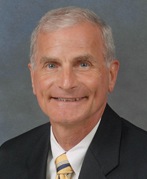
With hopes to end the legislative stalemate, renegade Republican Rep. Mike Fasano (R-New Port Richey) sponsored an amendment to the House proposal that was similar to the Senate plan that would provide federally subsidized health coverage to more than 1 million Floridians. However, the amendment got no traction in the Republican dominated House where there is no trust that Washington will meet their long term obligations and there is a strong plurality of members that believe the state should not rely on federal money at all.
Representative Clay Ingram (R-Pensacola) summed up the House Republican perspective in a statement to the Associated Press last week when he said, “The federal government will be bankrolling Medicaid expansion with deficit spending. The spending is designed to buy off states for three years until the federal government is ready to start shifting costs back to the state.”
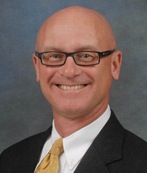
In an interview with Kaiser Health News, Dr. Cary Pigman (R-Avon Park), an emergency physician and freshman Representative, said that his top concern was the the looming federal deficit. “We do not believe that the money exists,” the freshman lawmaker said, adding, “We have every reason to be suspicious of any new money from the federal government.”
Special Session A Possibility, But ‘Improbable’
According to an Associated Press release, House Speaker Will Weatherford (R-Wesley Chapel) seemed unconcerned that a decision may not be reached this session, saying that the world wouldn’t come to an end if they can’t reach a compromise and that talks would continue in the offseason.
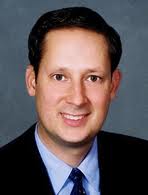
With no agreement during the regular legislative session, lawmakers could return for a special session, wait until 2014, or do nothing at all. Governor Scott has not indicated whether or not he will call a special session to re-address the issue, but Republican Senator Joe Negron, author of the Senate’s “Healthy Florida” plan, told Health News Florida that he thinks a special session to resolve the matter is “improbable.”
Politics Confounding, But Inherent Element Of Healthcare In America
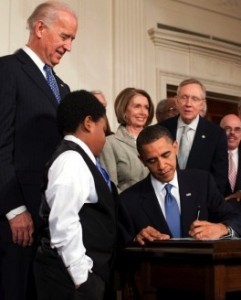
Florida is one of more than a dozen states still weighing the Medicaid expansion issue, which as defined in Obamacare is considered by many to be a primary linchpin for successful implementation of the law.
With the 2013 legislative session winding up tomorrow and basically no prospect for the approval of Medicaid expansion or a viable alternative plan for healthcare coverage of low-income and uninsured Floridians, lawmakers go home with the state still faced with the monumental question of how best to meet the healthcare needs of all Floridians.
Because of the contentious genesis and three year history of the PPACA, politics and diverse perspectives will continue to have an impact on its implementation and ultimate effectiveness to meaningfully improve healthcare in America.












